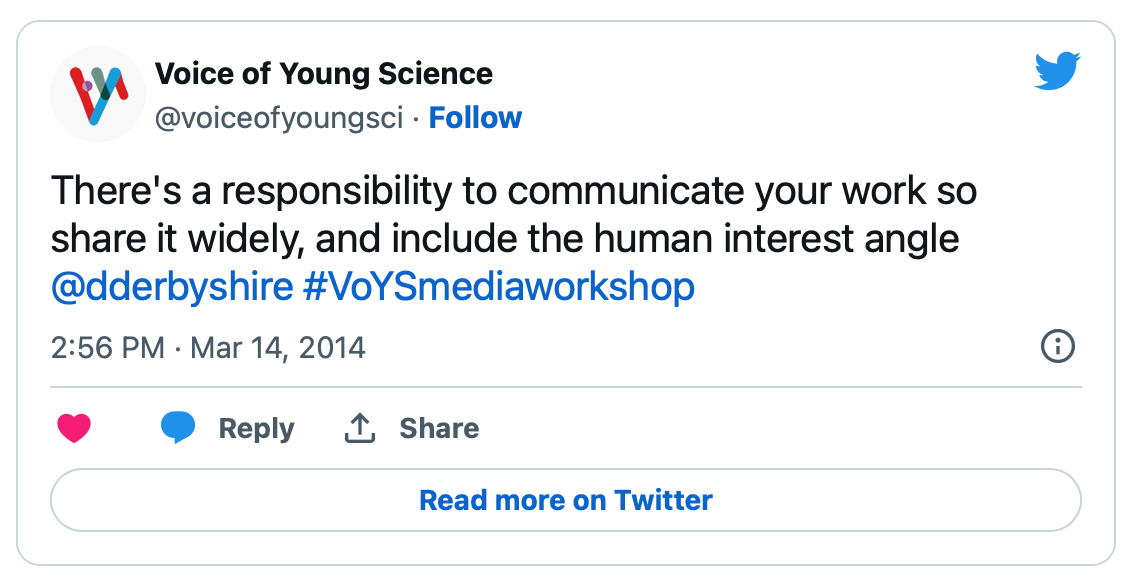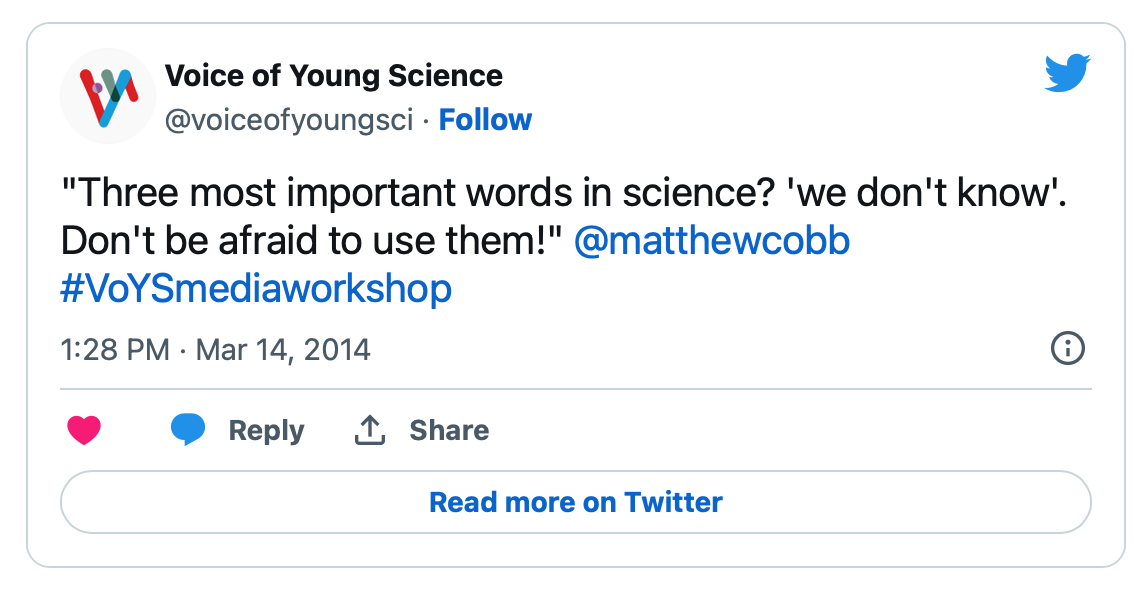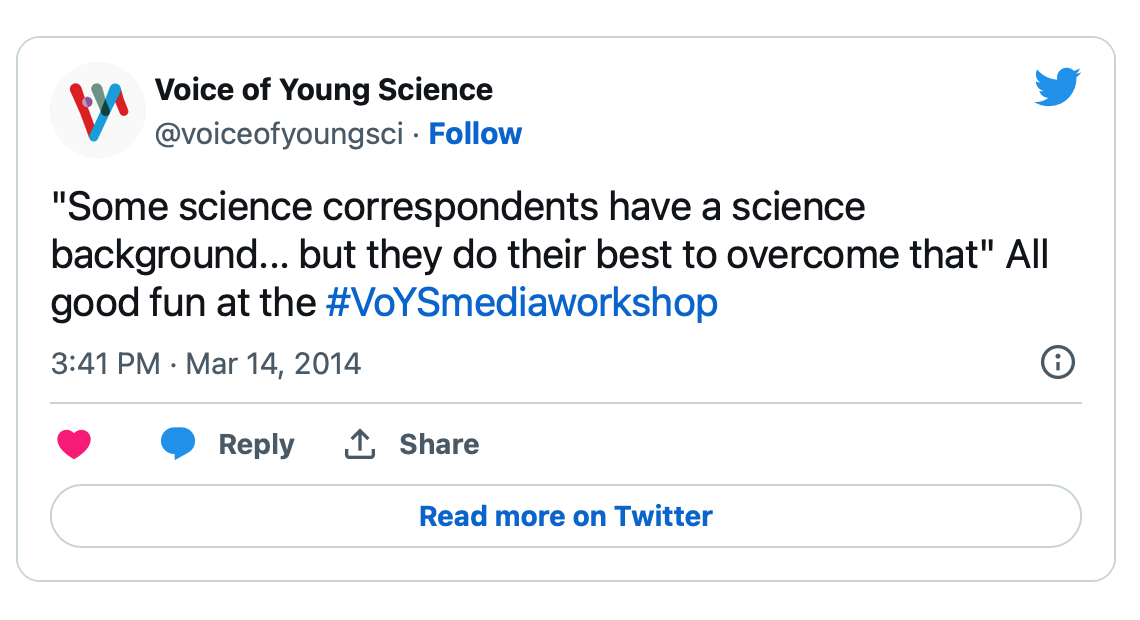Voice of Young Scientists Workshop
On Friday March 14th the group Voice of Young Scientists (@voiceofyoungsci, which belongs to Sense about Science @senseaboutsci) held a workshop to encourage young researches to communicate their work to the public.
The first session started with Matthew Cobb (@matthewcobb), Susanne Shultz (@Susanne_Shultz) and Jeffrey Forshaw (@jrf1968) three successful scientists that presented a very interesting insight into their relations with public media and journalists.
It is not clear to me whether Jeffrey Forshaw, particle physicist at the University of Manchester, directed his comment ‘scientists are just ordinary people who are curious and want to understand’ towards the much younger scientists or the journalists in the room. However, he made the important point that it is necessary for every researcher to know its stuff. Only when you feel comfortable in your field you can freely talk about it. Also, never try to hide your work. The only way to counter prejudice against scientific work is to be pro-active. Don’t wait for the public to ask you what you do, just start to tell them. And let me add here: even when they don’t ask.
This point was also supported by Matthew Cobb, evolutionary biologist at the University of Manchester. Being pro-active is especially important when you work in controversial areas, like gene modification, medical research, or even evolutionary biology. Writing about your and others work is good for at least two reasons. For one, you train how to write. And the other, your field becomes more understandable by the public and thus less suspicious of doing ‘bad things’.

If you finished your work on a project with a great paper, let your press officer now. They are your best link to all kinds of media and they will also help you to make the points you intended. Susanne Shultz, like Cobb evolutionary biologist at the University of Manchester, recommends to write a press release. Looking towards the journalists, she mentions that it is a lot faster for them to copy-paste an article than to write one from scratch.It might also prevent misinterpretations.
‘I assume’, says Forshaw, ‘media gets it always wrong.’ Therefore, be careful what you say and how you say it. Never try to oversimplify your work, but also don’t oversell it conclude Cobb and Forshaw. And most importantly, never let journalists push you to make a specific comment or statement. Never be afraid to embrace the three simple words that form the foundation of science: ‘I don’t know’ (or if you prefer ‘We don’t know’).

The second session brought BBC journalist Victoria Gill (@Vic_Gill) and freelancing journalist David Derbyshire (@dderbyshire). Their description of their daily work added an interesting angle to the panel in the morning. As representatives of different media (online, telly, print) they are interested novelties and surprises. If you want a big story talk about something big, or as Derbyshire explains it, ‘Of course an elephant is more interesting than a cat, which is more interesting than a mouse, and so on.’
Both Gill and Derbyshire point out that you shouldn’t be afraid of contacting journalists. They know what makes a good story. They are the professional story tellers and are glad to work together with whoever has something interesting to offer. Whether they talk to a PhD student, who actually does the job, or to its professor doesn’t really matter for them. Both are equally unknown to them. ‘As long as they don’t try to take over the editorial part’, states Gill.

This was a very interesting and refreshingly different workshop. Many thanks to the organisers and all participants, especially the speakers that took their time and afford to share their experience.
Another blogger blogged about the event here.